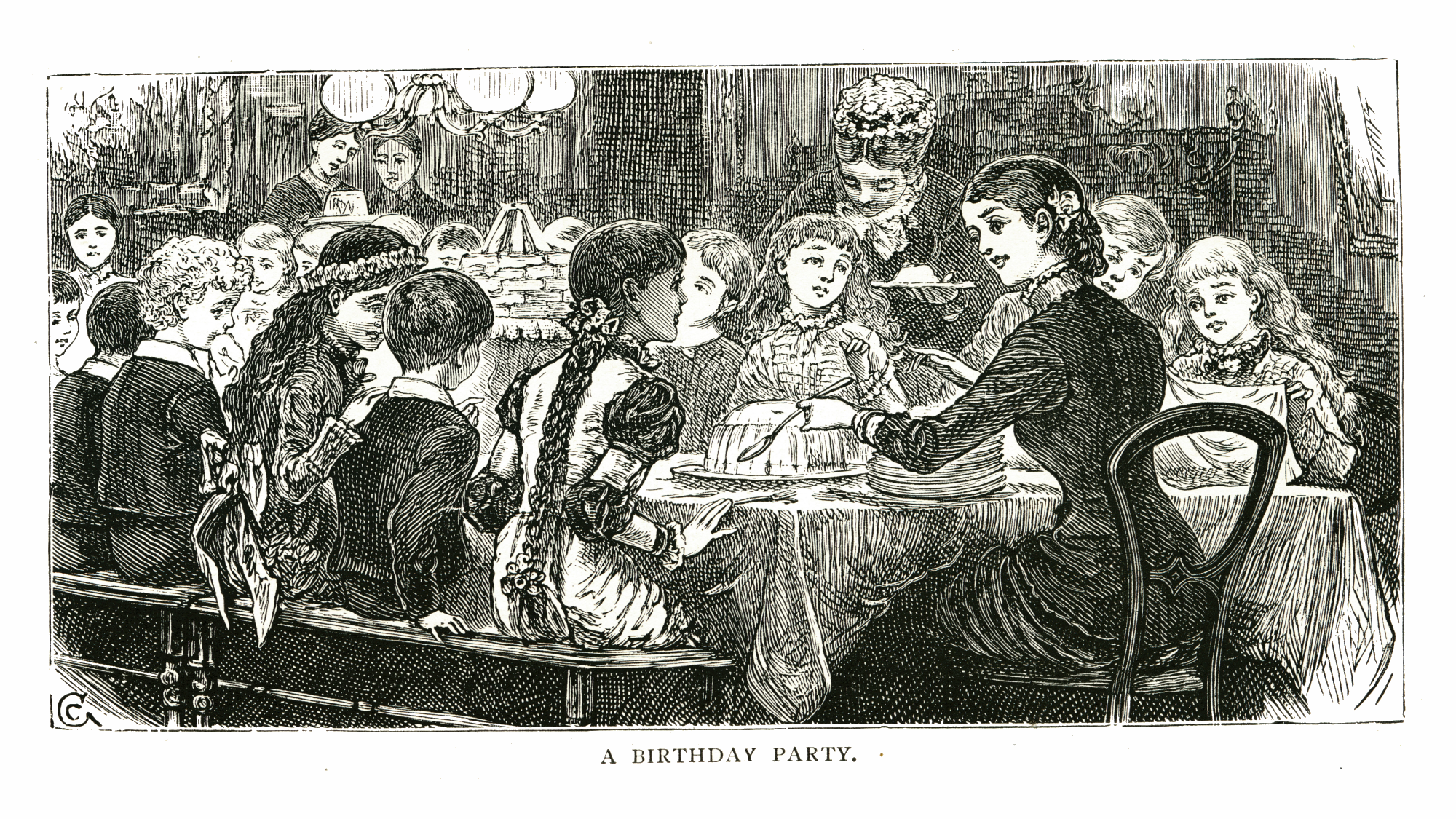
When were birthday parties invented?
Although many researchers assume that birthday celebrations date back to the ancient Egyptians, the earliest textual evidence of a birthday party proves these annual events are much older.

Birthdays have been around since life on Earth evolved, but the practice of marking that day with an annual celebration is comparatively recent. While an idea circulating online suggests birthdays were first celebrated by the ancient Egyptians, obscure cuneiform texts from four millennia ago prove otherwise.
"The first evidence of celebrating birthdays is from economic texts from Lagash," an important city in ancient Sumer, a region of southern Mesopotamia that is considered the site of the earliest known civilization, Vladimir Emelianov, a historian at St. Petersburg University in Russia, told Live Science in an email.
Emelianov has studied cuneiform tablets compiled in the third millennium B.C., during the reign of King Lugalanda (2384 to 2378 B.C.), that mention holidays celebrating the births of the ruler's children. An elite birth, according to the texts, was marked by an animal sacrifice that the living shared with their deceased ancestors.
"When Lugalanda was removed from power, the recording of birthdays also ended," Emelianov said. "As far as I know, there was nothing like this in Egypt or ancient Asia Minor [modern-day Turkey]."
The misconception of Egyptian birthday celebrations may come from Genesis 40:20, which says, "And it came to pass the third day, which was Pharaoh's birthday, that he made a feast unto all his servants." But according to Emelianov, birthday feasts for the pharaohs are not historically known until the Ptolemaic era (305 to 30 B.C.).
Related: What is the birthday paradox?
Another early note on birthdays comes from the Greek historian Herodotus. In the fifth century B.C., Herodotus wrote about the customs of the Persians in "Histories," saying that "of all days, their wont is to honor most that on which they were born, each one: on this, they think it right to set out a feast more liberal than on other days." Both the rich and the poor threw these birthday parties, where they cooked a wealth of meat and filled their tables with abundant desserts.
Sign up for the Live Science daily newsletter now
Get the world’s most fascinating discoveries delivered straight to your inbox.
This comment on the Persians suggests that "for a Greek of the High Classical period, celebrating a birthday was deemed unusual," Emelianov wrote in a 2017 study published in the research journal Bulletin of St. Petersburg University Oriental and African Studies. Rather, in the fifth to third centuries B.C., people were more interested in charting their newborn's horoscope to learn what kind of life the child would lead.
Emelianov has not pinned down exactly when annual celebrations of birthdays began. This tradition may have started with the Sumerian kings 4,000 years ago or with the Persians in the fifth century B.C., he said. These celebrations may even have taken place before humans began writing them down.
But by the later years of the Roman Republic (509 to 27 B.C.), the custom of celebrating an individual's birthday had become widespread. For evidence of this, Emelianov pointed to a character's birthday celebration in the Latin comedic play "Pseudolus," first staged in 191 B.C., and to a letter from the Roman orator Cicero mentioning his daughter's birthday celebration in 50 B.C. And in the first century A.D., a Roman woman wrote a letter to invite her friend to her birthday party at the fort of Vindolanda in England.
"Only one thing can be established with certainty — the day of birth is something that clearly sets one person apart from the other," Emelianov wrote. As soon as ancient societies became more focused on individuals rather than on the community, he concluded, "one's birthday becomes a landmark of personal existence and a cornerstone of individual success."
So, perhaps it's no surprise that, much like the Ptolemaic pharaohs, later kings and leaders used birthday celebrations to gather political support. In 1748, Great Britain started an annual tradition of celebrating the sovereign's birthday. During the American Revolution, instead of celebrating King George III, the colonists held mock funerals and disabled British cannons to prevent them from honoring the king. George Washington's birthday was also celebrated during the war, and a band serenaded him at Valley Forge in 1778, possibly inspired by the British tradition. By the time Washington became president, his birthday was a popular national event, but it was not until 1879 that Feb. 22 became a U.S. holiday.

History of modern birthday parties
The modern Western birthday celebration appears to trace its origins to the Renaissance but flourished in the industrial age, according to Hizky Shoham, a historian at Bar-Ilan University in Israel. In a paper published in 2020 in the journal Time & Society, Shoham argued that industrialization created the need for standardized time and for marking the passage of time with milestones.
In Western Europe and North America, celebrating one's date of birth with a party with friends became popular around 1870, according to Elizabeth Pleck, a historian at the University of Illinois Urbana-Champaign and author of the book Celebrating the Family (Harvard University Press, 2000). This idea of a birthday party with cake, candles and presents was largely the creation of wealthy Protestant parents in the U.S., Pleck wrote, but by the early 20th century, the tradition was prevalent regardless of wealth.
"As children's birthdays came to be recognized, the celebrations took a standardized form of cake, candles, a song, and presents," Pleck wrote. "More American parents today than at any previous time in history honor their child with a yearly party."
Although the tradition of a birthday celebration has come and gone throughout history, one aspect of the party appears to have remained the same over the millennia and throughout Western culture: making sure everyone — friends, family and sometimes even the ancestors — have enough food for a feast.

Kristina Killgrove is a staff writer at Live Science with a focus on archaeology and paleoanthropology news. Her articles have also appeared in venues such as Forbes, Smithsonian, and Mental Floss. Killgrove holds postgraduate degrees in anthropology and classical archaeology and was formerly a university professor and researcher. She has received awards from the Society for American Archaeology and the American Anthropological Association for her science writing.
You must confirm your public display name before commenting
Please logout and then login again, you will then be prompted to enter your display name.









